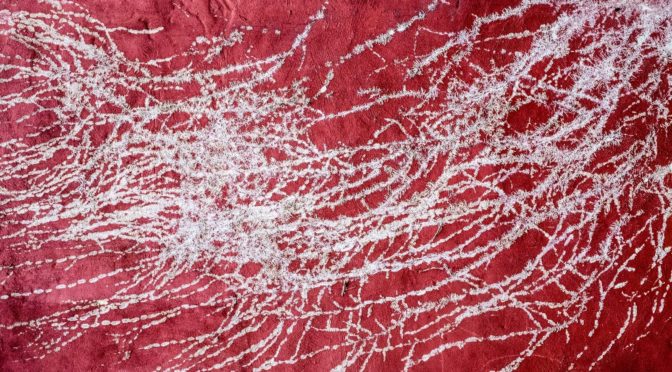Care of the Habitat. Between Infrastructure Maintenance and Attention to Living Beings
Location: CEFRES, Na Florenci 3, Prague
Date: 19–20 October 2023
Language: English
Organized by :
CEFRES (UMIFRE 13, UAR 3138, CNRS-MAEE), Prague
Scientific Committee :
Chloé Mondémé (Triangle, CNRS / CEFRES)
Petr Gibas (Institute of Sociology of the Czech Academy of Sciences / CEFRES)
Mateusz Chmurski (CEFRES)
Ange Pottin (University of Vienna / CEFRES)
Please see the program here below and download the program here.
CONFERENCE THESIS
In recent years, there has been a growing interest in the humanities and social sciences for studies that do not focus solely on humans. The concepts of “non-human”, “more than human”, “multi-species ethnography” or “post-anthropocentrism” have been proposed to provide a collective watchword for a new kind of field investigations and theoretical productions. The symposium “Caring for the habitat, between the maintenance of infrastructures and the attention to living beings’’ is in line with these ideas, which are fruitful for collective work. However, we must be careful not to lose, through the extension of concepts, the specificity of the objects and methods of investigation. This is why we propose to specify our object in two joint ways. Firstly, the subject will be anchored in a focus on care practices for the habitat. Second, we will focus on two types of non-human beings: technical infrastructures and living beings. The care of the habitat cannot be considered as a strictly an solely human activity. To live in a place (a house, a city, a region, etc.) is to engage in practices in which plants, materials, buildings, mushrooms, road signs, domesticated animals, energy-providing facilities, chemicals, etc. are entangled in an indefinite list. To care for all these beings is both to be able to read the signals they send and to identify their fragilities, and to engage with them in practices of mutual modification.
This question can lead to three types of interrogations of importance for the humanities and social sciences. (i) Can we describe the entanglements that care practices draw between technical infrastructures, living beings and humans in a way that escapes anthropocentric bias? (ii) Under what conditions can we compare care for technical infrastructures and care for living beings in a fruitful way without losing the specificity of the objects? (iii) Can we identify transfers of care practices from the human, animal and technical domains? This list of questions is obviously open-ended, and will grow as the discussion proceeds.
PROGRAMME
October 19th
9h30: Welcome
10h00-10h30: Foreword by Mateusz Chmurski (CEFRES) and Petr Gibas (Czech Academy of Sciences, CEFRES)
10h30-12h30: 1st panel: Infrastructure as habitat?
- Claire Le Renard (EDF R&D, LISIS)|‘‘Caring for absent fish. Biodiversity conservation policies disrupted by climate change”
- Alexandra Fruhstofer (University of Applied Arts of Vienna)|”Making Oddkin”
- Martin Denoun (GSPR)|’’Making nuclear materials cohabit: the French La Hague plant as a place for negotiating a new nuclear habitat policy”
Chair: Julien Wacquez (Université Paris Lumières)
12h30-14h: Lunch break
14h00-16h: 2d panel: co-habiting through care practices
- Adam Hudec (University of Fine Arts Vienna)|”Unveiling Microscopic Partnerships: Biopatina’s Symbiosis on Epidermitecture”
- Ange Pottin (University of Vienna, CEFRES)|“Nuclear residues, from the promises of waste disappearance to the uncertainties of care”
- Adam Ostolski (CEFRES, University of Warsaw)| “More-than-human medicine : veterinary practice and ongoing transformations of interspecies relationships”
Chair: Chloé Mondémé (CNRS-Triangle, CEFRES)
16h00-16h30: Break
16h30-18h00: 1st keynote:
Jérôme Denis (CNRS, Mines ParisTech) and David Pontille (CNRS, Mines ParisTech) | The Care of Things: Politics of Maintenance
Discussant: Ange Pottin (University of Vienna, CEFRES)
October 20th
9h30: Welcome
10h-12h: 3rd panel: Caring for multi-layered habitats
- Julie Beauté (ENS Paris, Aix-Marseille University)| ‘‘Medea’s metamorphic matters. Trans-mortem care and troubled ecology of a Sanatorium’’
- Karolína Pauknerová (Charles University, Institute for Theoretical Studies) | “Living heritage: Preliminary thoughts on apple trees of Ralsko”
- Nassima Abdelghafour (Alexandre Koyré Center)| “Carbon compensation, land appropriation, ecological simplification. A sad tribute to a terra nullius”
Chair: Adam Ostolski (University of Warsaw, CEFRES)
12h-13h: lunch break
13h-14h30: 2d keynote:
Matthew Gandy (University of Cambridge): Natura Urbana, Ecological Constellations in Urban Space
Discussant: Petr Gibas
14h30-15h: General discussion
15h-18h: Thematic tour in Prague
(Crédits photographiques : Augustin Frandon)

